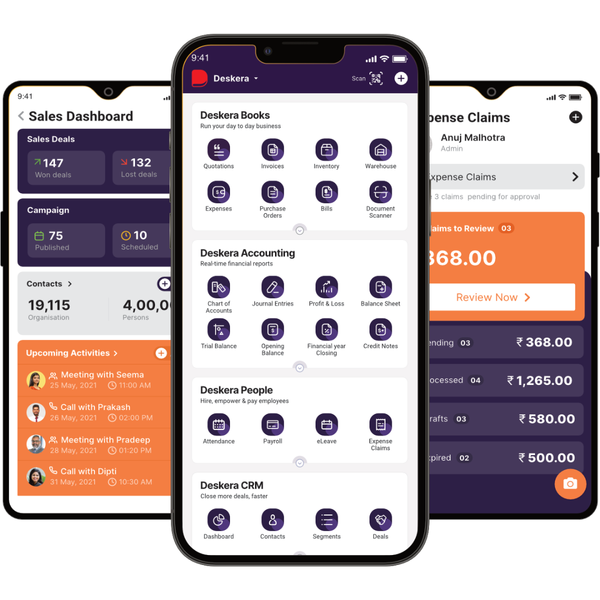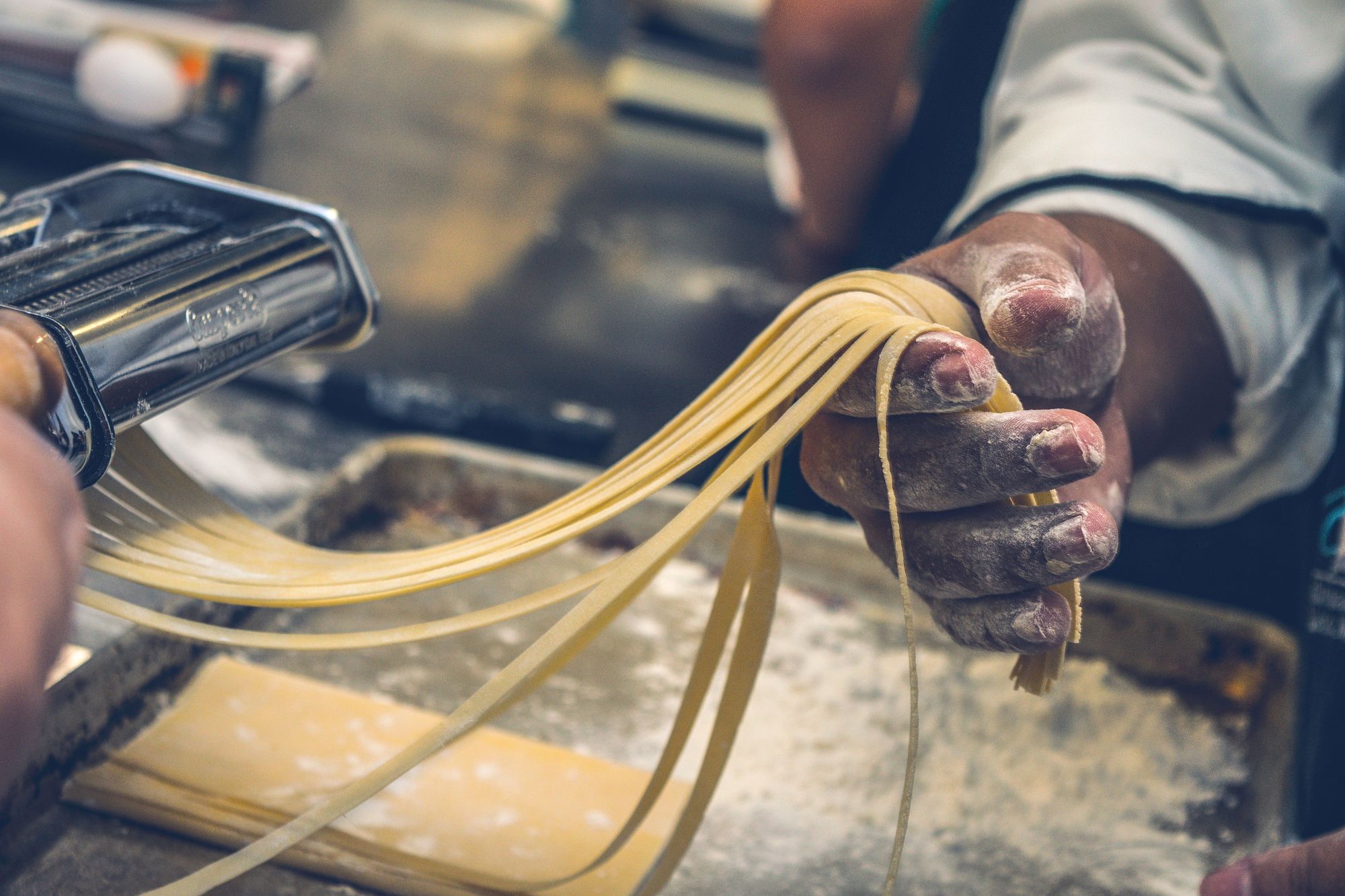Outsourcing food production is a growing trend in the food industry as companies look for ways to reduce costs and increase efficiency. It involves using third-party suppliers to produce food items that are needed. This can include anything from ingredients to ready-to-eat meals.

By outsourcing food production, companies can benefit from access to a larger and more diverse range of products, lower costs and a more efficient production process. However, there are also potential risks that come with outsourcing, such as quality control and food safety concerns. In this blog, we will explore the advantages and disadvantages of outsourcing food production, as well as the best practices to ensure a successful outsourcing process.
This article covers the following:
- Benefits of Outsourcing Food Production
- The Role of Technology in Outsourcing food production
- Global Food Supply Chain
- Advantages of Outsourcing Food Production
- Disadvantages of Outsourcing Food Production
- Regulations and Legalities of Outsourcing Food Production
- Best Practices for Outsourcing Food Production
- Consumer Preferences in Outsourced Food Production
- Impact of Outsourcing on the Environment
- The Future of Outsourcing Food Production
Benefits of Outsourcing Food Production
Outsourcing food production has become increasingly popular in recent years. From small businesses to large corporations, companies are recognizing the many benefits of outsourcing food production. Here are some of the advantages to consider when deciding whether outsourcing is right for you:
Cost savings
Outsourcing food production can help you save on costs. By outsourcing, you can avoid the costs of having to purchase and maintain expensive equipment, hire a full-time staff to manage and operate it, and maintain a separate facility for production. All of these costs can add up quickly, but outsourcing can help you avoid them.
Increased efficiency
By outsourcing food production, you can greatly increase the efficiency of your operations. By relying on a third-party provider, you can delegate production tasks so that you can focus on other aspects of your business. This can help you increase your productivity and free up more of your time to focus on other tasks.
Quality assurance
By outsourcing food production, you can get access to higher quality standards than you would be able to achieve on your own. Third-party providers are experienced with food production and can help ensure that your product meets all food safety and quality guidelines.
Flexibility
Outsourcing food production can give you more flexibility when it comes to your production needs. You can adjust your production schedule as needed and work with a provider that can quickly scale up or down depending on your needs.
Overall, outsourcing food production can be a great way to save on costs, increase efficiency, and ensure quality. It can also give you more flexibility to adjust your production schedule as needed. If you’re considering outsourcing food production, be sure to do your research and find a provider that can meet your needs.
The Role of Technology in Outsourcing Food Production
In today’s world, technology has revolutionized the way we produce and consume food. Outsourcing food production is becoming increasingly popular as businesses look to cut costs, increase efficiency, and gain access to a more diverse range of suppliers.
Technology is playing a major role in this process, allowing companies to better coordinate, manage, and monitor their supply chains. One of the major benefits of outsourcing food production is increased efficiency.
By using digital tracking systems, companies can monitor the entire production process from initial sourcing to delivery. This means that companies can ensure that their suppliers are meeting quality standards and ensuring that products are delivered to customers on time.
Another benefit of using technology for outsourcing food production is the ability to better coordinate and manage the supply chain. By using digital tools, companies can easily identify suppliers, track orders, and keep up to date with the latest trends in the food industry.
This allows them to stay ahead of the competition and provide the best possible products to their customers. Finally, technology has made it easier for companies to access a more diverse range of suppliers.
By using digital platforms, companies can easily find suppliers in different parts of the world, allowing them to access a wider range of ingredients and products. This means that companies can create unique and innovative products that are more cost-effective and based on customer feedback.
Overall, technology is playing an important role in the success of outsourcing food production. By using digital tracking systems, companies can better coordinate, manage, and monitor their supply chains, ensuring that products are high quality and arrive on time.
Additionally, technology has allowed companies to access a more diverse range of suppliers, allowing them to create unique and innovative products. By leveraging the power of technology in their outsourcing efforts, companies can ensure that their products are of the highest quality and cost-effective.
Global Food Supply Chain
The global food supply chain is an integral part of the global economy and is essential for ensuring a steady flow of food to the world’s population. In recent years, the world has seen an increase in food production and an increase in the number of people who rely on the global food supply chain for their food.
From farmers to processors to retailers and consumers, the global food supply chain is a complex and interconnected web of people, processes, and technologies. In recent years, the trend of outsourcing food production has been on the rise.
This trend has been driven by a variety of factors, including the globalization of business, the increasing demand for quality products, and the availability of suppliers and producers in other parts of the world.
The global food supply chain has become increasingly reliant on outsourcing as a way to reduce costs, increase efficiency and access new markets. Outsourcing food production can have a number of advantages for companies, including lower costs, faster turnaround times, and access to new markets.
However, there are also a number of risks associated with outsourcing food production. These risks include quality control issues, delayed delivery times, and potential food safety issues.
As such, companies must take a number of steps to ensure that they are outsourcing food production in a safe and responsible manner. These steps include conducting thorough research on potential suppliers, performing due diligence on suppliers and their processes, and establishing clear communication and reporting procedures with suppliers.
Companies must also ensure that their suppliers are using sustainable production practices and are following food safety guidelines. Finally, companies should ensure that they are working with reliable and reputable suppliers who can provide quality products and services.
The global food supply chain is a complex and interconnected web of people, processes, and technologies. Outsourcing food production can provide companies with a number of advantages, but it is important to take the necessary steps to ensure that the process is done safely and responsibly. By doing so, companies can ensure that their products are of the highest quality and that their customers are provided with safe and nutritious food.
Advantages of Outsourcing Food Production
Outsourcing food production has become increasingly popular in recent years, as businesses seek ways to save money and increase efficiency. By outsourcing their food production, companies can benefit from a variety of advantages. Here are some of the top benefits of outsourcing food production:
Cost Savings
Outsourcing food production can save companies a great deal of money in the long run. By outsourcing production, you can take advantage of economies of scale, which can help you get the most out of the resources you have.
Additionally, by outsourcing, you can eliminate the need for certain expensive equipment and resources, such as large refrigeration units, which can be costly to maintain.
Time Savings
By outsourcing production, companies can save time by not having to manage the production process themselves. Outsourcing can also help companies move quickly in getting products on the shelves, as the production process can be expedited.
Quality Control
Outsourcing food production can help companies maintain a high level of quality control. By outsourcing production, companies can ensure that their products meet industry standards and are produced with the highest quality materials.
Increased Flexibility
By outsourcing production, companies can also benefit from increased flexibility. This can help them quickly respond to changes in the market or customer demand. Additionally, they can also experience greater flexibility in terms of production schedules, which can help them keep up with demand.
Outsourcing food production can be a great way for companies to save money, and time, and ensure that their products are of the highest quality. By taking advantage of the many advantages of outsourcing food production, companies can improve their bottom line and experience greater success.
Disadvantages of Outsourcing Food Production
As the world becomes increasingly interconnected, more and more companies are turning to outsourcing to reduce costs and increase efficiency. While outsourcing can be a great way to stay competitive, it can also have some drawbacks when it comes to food production. Here are some of the potential disadvantages of outsourcing food production:
Quality Control
When you outsource food production to another company, you may lose some control over the quality of the product. If the outsourced company does not have the same standards as your own, it can lead to a lower quality product being produced.
Traceability
When food is produced by an outsourced company, it can be difficult to trace the product back to its origin. This can make it difficult to ensure that the food is safe and free from contamination.
Cost
While outsourcing may seem like a cost-effective solution for food production, it can often be more expensive than producing the food in-house. This is especially true when dealing with large-scale production.
Cultural Differences
Cultural differences can be a major obstacle when outsourcing food production. Different nations have different ideas about food production and safety standards, which can lead to confusion and delays.
Communication
It can be difficult to communicate effectively with an outsourced company, especially if they are located in a different country. This can lead to misunderstandings and delays in production.
Outsourcing food production can be a great way to save money and increase efficiency. However, it’s important to be aware of the potential drawbacks of outsourcing and to make sure that you are choosing the right company to ensure quality and safety.
Regulations and Legalities of Outsourcing Food Production
When it comes to outsourcing food production, there are certain regulations and legalities that must be taken into account. For example, in the United States, the FDA has specific regulations about the safety of food production. These regulations include, but are not limited to, the following:
• The food must be produced under sanitary conditions and must be safe for human consumption.
• The food must be properly labeled to identify any allergens and other potential hazards.
• Any food additives must be approved by the FDA prior to use.
• The food must be kept at the right temperature to prevent the growth of bacteria.
• The food must be free from contamination, such as microorganisms, pests, and foreign objects.
• The food must be free from contamination, such as pesticide residues and other chemicals.
• The food must be free from contamination, such as heavy metals and other toxins.
• The food must be stored and handled properly to prevent spoilage and contamination.
• The food must be tested for quality control to ensure that it meets the standards set by the FDA.
In addition to these regulations, companies that outsource food production must also be aware of the laws that govern their business. These laws include, but are not limited to:
• Food safety laws, which require companies to make sure their food is safe for human consumption.
• Labeling laws, which require companies to properly label their food products to identify any potential hazards.
• Food quality laws, which require companies to test their food products for quality control.
• Transportation laws, which require companies to transport their food products safely and securely.
• Packaging laws, which require companies to package their food products properly to prevent contamination and spoilage. It is important for companies to be aware of all of the regulations and legalities that govern food production when they are outsourcing. This will ensure that they are in compliance with the law, and will help protect their customers from any potential health risks.
Best Practices for Outsourcing Food Production
As the food industry continues to grow, many companies are turning to outsource to help meet their production needs. Outsourcing food production can be a great way to reduce costs, increase efficiency, and stay competitive in the marketplace.
However, it is also important to ensure that best practices are followed when outsourcing food production. Here are some tips to help you get the most out of your outsourcing efforts:
Establish clear lines of communication
The success of an outsourcing relationship relies heavily on effective communication. Establishing a clear line of communication between the outsourcing provider and the company is essential. This will help ensure that everyone is on the same page regarding the production process and that any issues or concerns can be addressed quickly.
Develop a thorough understanding of the outsourcing provider's capabilities. It is important to understand the capabilities of the outsourcing provider before entering into an agreement. Ask questions about their production processes, their quality assurance measures, and their timeline for delivery. This will help ensure that the provider can meet the company's production needs.
Create a detailed and transparent agreement
It is essential to have a detailed and transparent agreement in place prior to the start of production. This agreement should cover all aspects of the outsourcing relationship such as the timeline for production, quality assurance measures, pricing, and payment terms.
Monitor the production process
Once production has begun, it is important to monitor the process to ensure that the production is according to plan and that the quality of the product is up to the company's standards. Regular communication with the outsourcing provider should be maintained throughout the production process.
Outsourcing food production can be a great way to reduce costs, increase efficiency, and stay competitive in the marketplace. However, it is important to ensure that best practices are followed in order to get the most out of the outsourcing relationship.
By establishing clear lines of communication, understanding the outsourcing provider's capabilities, creating a detailed and transparent agreement, and monitoring the production process, companies can ensure that their production needs are met and that the quality of the product is up to their standards.
The Future of Outsourcing Food Production
The future of outsourcing food production is a topic that has been gaining increasing attention in recent years. With a growing population and global challenges, it is becoming more and more important to find cost-effective ways to provide the world's population with the food they need.
Outsourcing food production is one potential solution that could help to meet these demands. Outsourcing food production has several potential benefits. By outsourcing, companies can gain access to a larger pool of resources, allowing them to produce more food at an affordable cost.
Additionally, by taking advantage of global labor markets, companies can reduce their overhead and operating costs. Lastly, outsourcing can help to diversify production and reduce the risk of supply chain disruptions.
Despite the potential benefits, there are also a few potential challenges associated with outsourcing food production. Many countries have strict regulations and laws governing food production and safety.
Companies must ensure that they are in compliance with these regulations or risk facing costly fines and penalties. Additionally, there is a risk of food contamination and food-borne illnesses, which can be difficult to detect and contain. Fortunately, there are a few steps companies can take to mitigate these risks.
For example, companies should ensure they are working with reliable and responsible suppliers and that they have a comprehensive quality control process in place.
Additionally, companies should take advantage of traceability systems and advanced technology, such as blockchain, to monitor their supply chain and ensure food safety.
Overall, the future of outsourcing food production looks promising. By taking advantage of the potential benefits and mitigating the associated risks, companies can ensure they are producing safe, quality food at an affordable cost. As the demand for food continues to grow, outsourcing food production could become an increasingly important part of the global food supply chain.
How Can Deskera Assist You?
As a manufacturer, you must keep track of your inventory stock. The condition of your inventory has a direct impact on production planning. It also has a direct impact on people and machinery use and capacity utilization.

Deskera MRP is the one tool that lets you do all of the above. With Deskera, you can:
- Control production schedules
- Compile a Bill of Materials
- Produce thorough reports
- Make your dashboard
Deskera ERP is a complete solution that allows you to manage suppliers and track supply chain activity in real-time. It also allows you to streamline a range of other company functions.
Deskera Books allows you to manage your accounts and finances better. It helps maintain good accounting standards by automating billing, invoicing, and payment processing tasks.
Deskera CRM is a powerful tool that organizes your sales and helps you close deals rapidly. It enables you to perform crucial tasks like lead generation via email and gives you a comprehensive view of your sales funnel.
Deskera People is a straightforward application for centralizing your human resource management activities. Not only does the technology expedite payroll processing, but it also helps you to handle all other operations such as overtime, benefits, bonuses, training programs, and much more.
Key Takeaways:
- Outsourcing food production can help you save on costs.
- By outsourcing production, companies can save time by not having to manage the production process themselves.
- Outsourcing food production can help companies maintain a high level of quality control.
- By outsourcing production, companies can also benefit from increased flexibility. This can help them quickly respond to changes in the market or customer demand.
- The success of an outsourcing relationship relies heavily on effective communication.
Related Articles:












